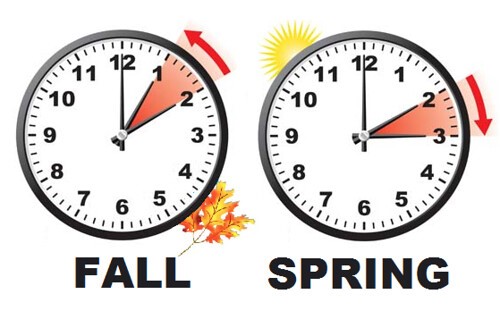Has Daylight Saving Time Stuck Around for Too Long?

Image Credit: flickr.com
Now a month into Daylight Saving Time (DST), most people have had the time to adjust to the changing of clocks and daylight hours. However, as is the case every year when DST comes around, many find themselves asking: What’s the point?
Origins
While there is no distinct origin of Daylight Saving Time, many attribute the first mention of such an idea to Benjamin Franklin, who wrote letters from France about how their citizens would have daylight by 6 a.m., much sooner than the average person would have woken up or have started working. He saw it as a waste of sunlight hours, and jokingly requested cannons to be fired at mornings to wake up citizens and have them take advantage of the morning hours. While his response was in no way advocating for a time change to address the issue of lost daylight, he still is often named as the source of this modern practice.
Change and Opposition
In recent years, many see not having DST be in permanent effect as an inconvenience — so much, in fact, that the Senate has passed a bill just this March for later hours to become a standard within the United States. Senators generally state that the time change becoming permanent would lead to more enjoyment during daylight hours. In addition, this would help relieve seasonal depression usually caused by lack of daylight. This also mirrors the popular vote in many polls, in which over 60% of participants do not want to have to change their clocks twice a year.
There are still many who would prefer the clocks to continue jumping forward and back an hour. One such advocate to keep the system intact is sleep science professor Kenneth Wright of the University of Colorado, who claims that not changing clocks will lead to many health and psychological impacts. For instance, having an extra hour of daylight later in the day means one more hour of darkness early in the morning — which would go against modern circadian rhythms and sleep schedules. This, in turn, could lead to a lack of sleep — which compounds into worsening mental health, increased chances of heart attacks and weight gain, etc. Additionally, there is the assertion needed to be made in regards to work and school schedules – people are not primed to wake up in darkness and it makes it difficult for those who need to travel in the early mornings with minimal light.
Altogether, the implementation of Daylight Saving Time is still fiercely contested — with valid arguments on both sides of the issue. Is the lack of changing the clocks and the extra daylight later in the day worth the extra hour of darkness in the morning? Are the health impacts of disrupting the circadian rhythm worth the change? We may very well soon find out if the new law is passed into action.
